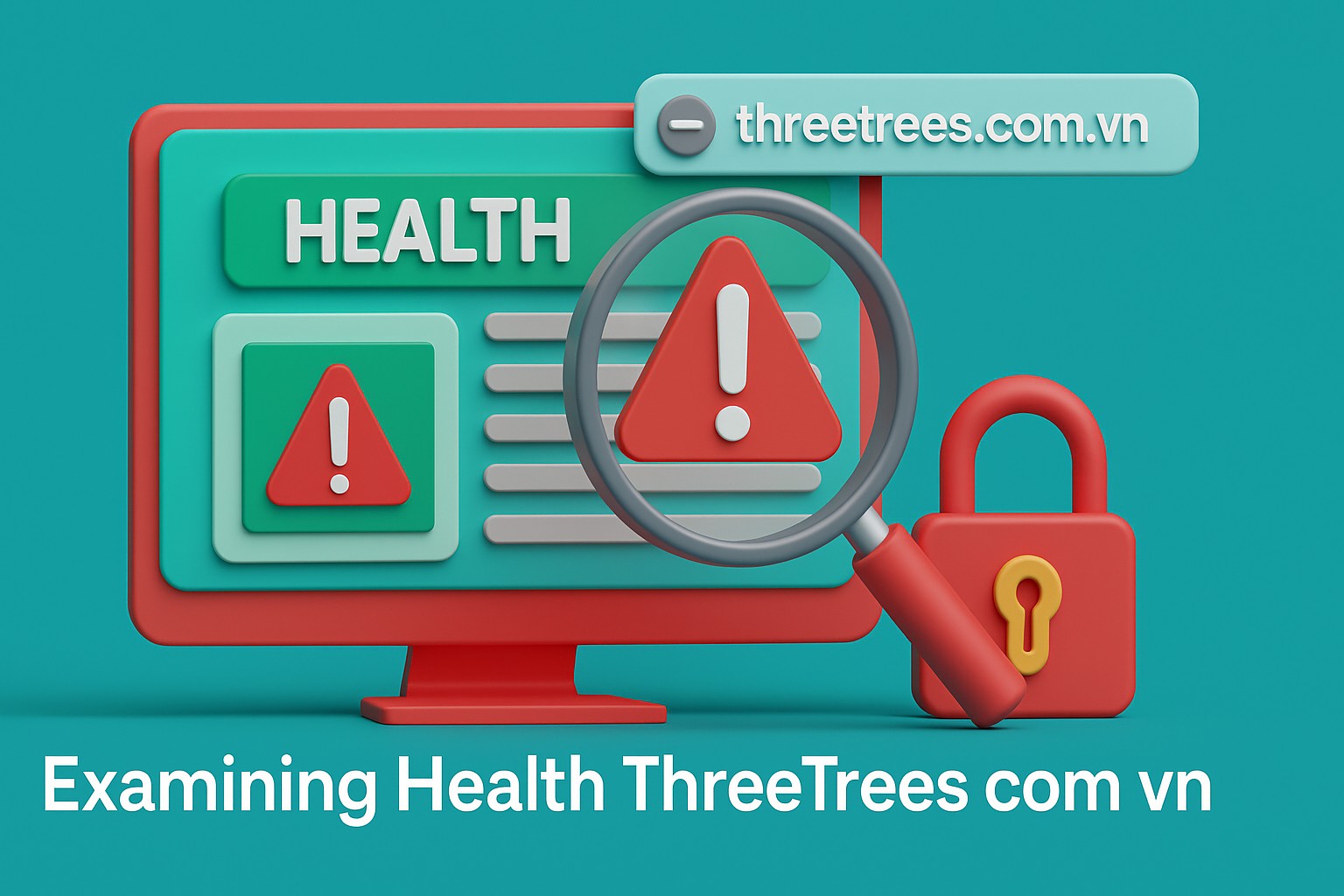Online health sites grow every day. Some promise natural cures. Others share lifestyle advice. Many look helpful at first glance. Still, not all give real or safe information.
Health ThreeTrees com vn has caught attention online. Some users search for it with hopes of finding health tips. Others ask if it is a real service or just another clickbait site. The name sounds clean, natural, and peaceful-but is it safe?
Before you trust any site with your health, you need to check facts. You must know who runs it, what it offers, and whether it protects your time and data. Some websites appear friendly but hide risky content, broken links, or false claims.
This article gives a full guide. You will learn what Health ThreeTrees com vn shows, what users should watch out for, and what steps to take before trusting such pages. This helps you stay safe and informed online.
What Is Health ThreeTrees com vn?
The name Health ThreeTrees com vn sounds like a wellness site. It might make you think of herbs, clean food, or plant-based healing. But in most searches, the website leads to confusion. Some links are empty. Others show jewelry or random products.
There is no clear home page that explains its purpose. It does not list real contact details, expert authors, or company history. These signs should raise caution. A good health site should offer clear sections, helpful sources, and honest writing.
Some cloned or spoofed versions appear on strange domains. These copies may use the phrase “health threetrees com vn” in fake blog posts. They sometimes include links to other products or pop-ups not tied to real wellness advice.
If a user clicks through, the pages often feel empty or vague. You may not find recipes, health tips, or trusted content. This makes the entire topic unclear and possibly unsafe to follow.
TimesHealthMag Nutrition: Expert Analysis and Safe Diet Advice
Why Site Trust Matters
When you visit a health website, you often expect value. You want facts that can help you feel better. You may search for food ideas, fitness advice, or natural remedies. A good site should meet these needs. It should use sources you can check.
If a website shows unclear topics, no author name, and no proof of value, it loses trust. Even worse, some websites hide tracking tools, fake product ads, or pages that send you somewhere else. These can harm your device or waste your time.
Always check who runs the site. Look for an “About” page. Look for expert names and contact info. A real health site will not hide behind fake blogs or copied posts. It will use clean design, working links, and clear writing.
What Risks Can Users Face?
Users may face more than just bad advice. Some pages carry links that lead to scams. They may ask you to enter personal data or download files. Others may track you across the web or push products without proof.
If the site does not open or shows a blank page, it may waste time. If it leads to unrelated shops or copied health tips, it may break your trust. In rare cases, some fake sites can also pass viruses or harm your browser.
Bad links, poor grammar, or strange web names are red flags. Real health platforms will not link you to odd domains or use clickbait headlines.
What Should You Do First?
If you come across Health ThreeTrees com vn, take simple steps. First, avoid clicking random buttons. Use a secure browser with pop-up protection. Then, look for reviews or public comments. See if others have flagged the site as harmful or safe.
Try searching the web address with “scam” or “review” added. You may find useful feedback. Use tools like Google Transparency Report or Scam Adviser to test the safety of the site link.
If the site looks empty or odd, leave it right away. Do not share your name, phone number, or email. Do not download files or enter passwords.
Can You Trust Similar Sites?
Some health sites use soft words and clean photos to look helpful. But good design does not prove quality. Always look deeper. A helpful site will show real names, dates, and working links. It will credit doctors, writers, or health groups.
Many trusted sites use .org or .edu domains. They also share research from known sources. If a site hides behind copied posts or strange language, skip it.
You deserve real advice from real people. Trust takes time to build, and your health should not rely on guesswork.
What to Read Instead
If you want safe health tips, look for known websites. Places like Mayo Clinic, Healthline, and WebMD share free, easy guides. They update facts often. They name real doctors and explain where each claim comes from.
You can also follow simple health blogs that show honest writing. Look for pages with clear writing, clean design, and open contact info. If you run a blog, make sure each post helps readers and links to real sources.
Wellness content should feel human, not fake. It should give real value and respect your time.
You can also read our HealthRangerReport.com User Guide: Navigation, Content, and Safety Tips to learn how to spot real health platforms and avoid common risks.
Conclusion
Health ThreeTrees com vn may sound like a safe place, but the truth is unclear. The site does not show clear content, real authors, or safe tools. Users may feel lost, confused, or misled. In some cases, they may risk clicking into unsafe pages.
It is always smart to pause and check. Do not follow every soft-sounding site. Look for clear facts, trusted names, and working links. Stay in control of your time and health.
When you explore health topics online, pick sources that help, not harm. Your health matters, and so does your trust.
Frequently Asked Questions (FAQs)
1. What is Health ThreeTrees com vn?
It appears to be a web address linked to health-related terms, but the site shows no clear content or trusted source.
2. Is Health ThreeTrees com vn a real health website?
It does not show signs of a real health platform. Pages often lead to unclear content or unrelated products.
3. Can I trust the links on Health ThreeTrees com vn?
You should be careful. Some links may lead to empty pages, ads, or risky redirects.
4. Does the site offer real medical advice?
There is no proof that it does. It lacks expert names, clear contact info, or research-based facts.
5. What should I do if I visit a site like this?
Close the page right away. Do not enter your data or click random links. Use safe, known sites instead.
This article is for general information only. It does not offer medical or legal advice. Always check trusted sources and speak with a licensed expert before making health decisions.




